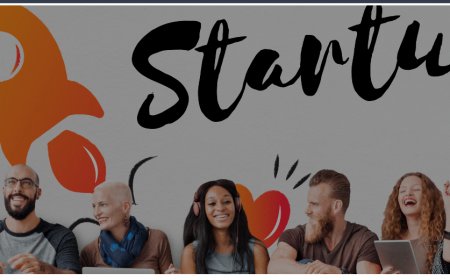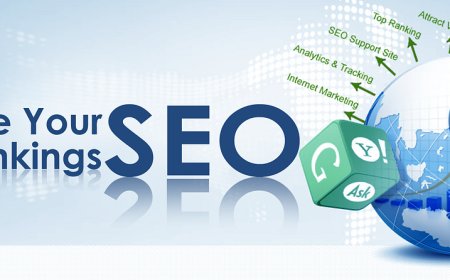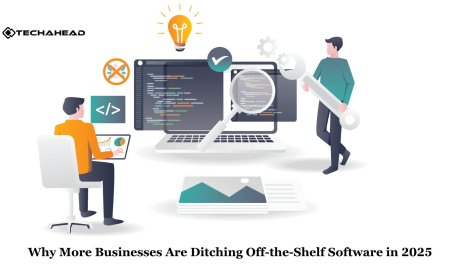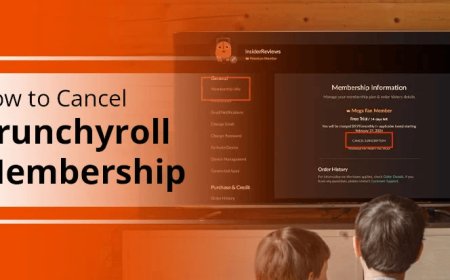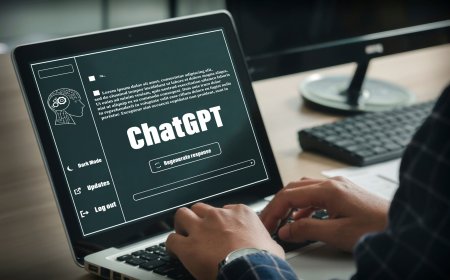What’s the Difference Between Custom AI Copilot Solutions and Generic AI Tools?
Not all AI solutions are created equal. While generic AI tools offer broad functionality for general use, custom AI Copilot solutions are purpose-built to align with specific business processes, data, and goals.

Artificial Intelligence (AI) is transforming the way businesses operate, communicate, and make decisions. From automating workflows to offering predictive insights, AI is no longer just a futuristic conceptits an everyday necessity. But as the adoption of AI accelerates, organizations face an important question: Should we use a generic AI tool or invest in a custom AI Copilot solution?
While both options harness the power of AI, they are fundamentally different in terms of functionality, flexibility, and impact. In this blog, well explore the core differences between custom AI Copilot solutions and generic AI tools, and why choosing the right one can significantly influence your operational success.
1.Purpose and Personalization
? Generic AI Tools:
Generic AI tools are designed to serve a broad range of users and industries. They offer general functionalities like chatbots, language translation, or data analysis, but they lack deep customization for specific workflows.
? Custom AI Copilot Solutions:
Custom AI Copilots are built specifically for your organizations unique goals, data, and internal processes. They are trained on your business knowledge, documents, systems, and terminologyfunctioning like a personalized digital assistant that understands your day-to-day challenges.
? Winner: Custom AI Copilots
They provide targeted, role-specific functionality that aligns directly with your teams work.
2.Integration with Existing Systems
? Generic AI Tools:
These tools often function as stand-alone applications with limited integration options. While some offer plug-ins, they may struggle to sync seamlessly with legacy systems, ERPs, CRMs, or niche software used within your company.
? Custom AI Copilot Solutions:
Custom Copilots are built with deep integration in mind. Whether youre using Salesforce, SAP, HubSpot, or a proprietary tool, your Copilot can be designed to connect and automate across platforms effortlessly.
? Winner: Custom AI Copilots
They reduce friction by operating within your existing ecosystem rather than around it.
3.Scalability and Flexibility
? Generic AI Tools:
Limited to predefined use cases, generic tools may not adapt well to organizational changes or industry-specific needs. Scaling them across departments or customizing features often requires significant workarounds.
? Custom AI Copilot Solutions:
These solutions are built with modularity and scalability in mind. You can start smallautomating one departmentand gradually expand capabilities across the organization. Features can evolve as your business does.
? Winner: Custom AI Copilots
They grow with you and evolve based on feedback, new requirements, and strategic shifts.
4.Decision-Making Support
? Generic AI Tools:
Most generic tools provide basic outputssuch as analytics dashboards or chatbot responsesbut dont offer advanced decision support. Their insights are typically limited to surface-level data.
? Custom AI Copilot Solutions:
Custom Copilots provide context-aware recommendations, predictive analytics, and real-time decision support tailored to your operational goals. They can interpret patterns, identify anomalies, and even recommend the next best actions.
? Winner: Custom AI Copilots
They enable smarter, faster decisions that are informed by your organizations specific data and history.
5.User Experience and Adoption
? Generic AI Tools:
With one-size-fits-all interfaces, generic tools may not fit your teams workflow or preferences, which can hinder adoption and efficiency.
? Custom AI Copilot Solutions:
Designed with your users in mind, these Copilots offer personalized dashboards, natural language interfaces, and task-specific workflows. Theyre intuitive, collaborative, and adaptable to each departments unique needs.
? Winner: Custom AI Copilots
Higher usability means better adoption and ROI from day one.
6.Security and Compliance
? Generic AI Tools:
Out-of-the-box tools may offer standard security features, but they often lack the granularity required for industries with strict compliance regulations (e.g., healthcare, finance, legal).
? Custom AI Copilot Solutions:
Built with your industry and geography in mind, these solutions incorporate role-based access controls, data encryption, audit trails, and compliance protocols such as GDPR, HIPAA, or SOC 2.
? Winner: Custom AI Copilots
Theyre built to meet your organizations unique security and regulatory requirements.
7.Cost and ROI
? Generic AI Tools:
Often cheaper upfront, these tools provide basic functionality but may require costly upgrades, add-ons, or integrations to meet specific needs.
? Custom AI Copilot Solutions:
While initial investment may be higher, custom Copilots deliver significantly better long-term ROI by boosting productivity, streamlining operations, and improving decision-making with tailored automation.
? Winner: Custom AI Copilots
Higher upfront value leads to better long-term gains in performance and efficiency.
Final Verdict
| Feature | Generic AI Tools | Custom AI Copilot Solutions |
|---|---|---|
| Personalization | ? Limited | ? Deeply tailored |
| System Integration | ? Basic or None | ? Full integration |
| Scalability | ? Rigid | ? Flexible & modular |
| Decision Support | ? Surface-level | ? Context-aware |
| User Experience | ? One-size-fits-all | ? Role-specific |
| Security & Compliance | ? Generic | ? Industry-specific |
| ROI Over Time | ? Moderate | ? High |
Final Thoughts
Both generic AI tools and custom AI Copilot solutions have their placebut if your organization needs a solution that truly understands your workflows, integrates with your systems, and grows with your business, custom AI Copilots are the clear winner.









